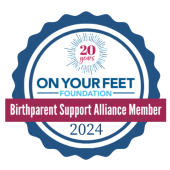
For families considering adoption, every detail matters. Understanding the legal adoption age limit and knowing what to expect from adoption agencies can make a significant difference.
Legal adoption age limits are crucial as they ensure that the adoption process prioritizes the best interests of the child. These limits vary depending on jurisdiction and the type of adoption being pursued. In the United States, the laws are crafted to balance the rights of adoptive parents with the needs and welfare of the child.
Adoption Age Limit
In the United States, there is no upper age limit for adoptive parents. However, individual states have specific regulations that can impact potential adoptive parents. Generally, most states require adoptive parents to be at least 21 years old. Some states may have additional criteria that must be met.
Furthermore, adoption agencies may have specific policies regarding age of the adoptive parents. Adoption Center for Family Building requires hopeful adoptive parents to be at least 25 years old. In addition to age requirements, agencies will evaluate the overall well-being and stability of the potential adoptive family. This includes assessing financial stability, physical and mental health, and the ability to meet the child’s needs. This thorough approach ensures that the best interests of the child are always the top priority.
The Role of Adoption Agencies
Adoption agencies are essential in the adoption process. They serve as intermediaries between birth parents and adoptive families, providing the necessary guidance, support, and resources to facilitate a smooth and successful adoption.
Adoption agencies offer a range of services designed to support both adoptive families and birth parents throughout the adoption process. Key services include:
- Pre-Adoption Training: This service helps adoptive parents understand the legal, emotional, and practical aspects of adoption.
- Home Studies: A home study is a comprehensive assessment conducted by the agency to evaluate the suitability of the adoptive home.
- Matching Services: Agencies work to match birth parents with adoptive families based on preferences, needs, and compatibility.
- Post-Adoption Support: Ongoing support is critical for the well-being of the adoptive family and the adopted child. Agencies provide post-adoption services like counseling, support groups, and educational resources.
- Legal Assistance: Agencies typically provide referrals to adoption attorneys for navigating the legalities of the adoption process to ensure all necessary documentation and legal requirements are met.
The Process of Adoption: Step by Step
1. Initial Inquiry and Application
The adoption process often begins with an initial inquiry to the adoption agency. This step involves gathering information about the agency, the types of adoption available, and the requirements for adoptive parents. Once an adoptive family decides to proceed, they will officially apply to the agency.
During this stage, adoptive families can expect to provide detailed personal information, including background checks, medical reports, and references. This information helps the agency understand the family’s readiness and suitability for adoption.
2. Home Study and Approval
The home study is a critical component of the adoption process. It involves interviews with a social worker, visits to your home, providing documentation, and carrying out background checks to evaluate the suitability of the adoptive home. The objective is to ensure that the child will be placed in a stable, safe, and loving environment. Upon successful completion of the home study, the adoptive family will receive approval to adopt.
- Interviews: Social workers conduct interviews with all household members to understand their motivations for adoption and their family dynamics.
- Home Visits: These visits assess the physical environment of the home to ensure it meets safety standards.
- Background Checks: Criminal and child abuse background checks are conducted to ensure the safety of the child.
- Health Statements: Medical evaluations ensure that the adoptive parents are physically and mentally capable of raising a child.
- Financial Statements: These assessments verify that the family has the financial stability to support a child.
3. Matching and Placement
- Family Profiles: Expectant parents review profiles of prospective adoptive families to find the right match for them.
- Match Meeting: A meeting between the expectant parents and the hopeful adoptive family may be arranged to help them get to know each other better and for the expectant parents to be sure this is the family they would like to place their child with.
- Ongoing contact: With open adoption, expectant parents and hopeful adoptive families have the opportunity to stay in touch and continue building their relationship while awaiting the arrival of the baby.
- Placement: In infant adoption, the baby is typically placed with the adoptive family following discharge from the hospital. Exact time frames may vary by state and agency.
4. Legal Finalization
- Filing a Petition: The adoptive parents file a petition to finalize the adoption with the court.
- Court Hearing: A hearing is scheduled where the judge reviews all documentation and approves the adoption if everything is in order.
- Adoption Decree: Once approved, the judge issues an adoption decree, legally recognizing the adoptive parents as the child’s legal guardians.
5. Post-Adoption Support
- Support Groups: Connecting with other adoptive families can provide valuable insights and a sense of community.
- Educational Resources: Workshops and seminars on parenting, child development, and other relevant topics can help adoptive parents better understand their child’s needs.
- Counseling Services: Short term counseling services are often available to help families handle any challenges that may arise after adoption. Agencies also have the ability to connect you with additional services if needed.
Common Questions About Adoption
- What Are the Costs Involved in Adoption?
Adoption costs can vary widely depending on the type of adoption and the agency. Expenses may include home study fees, program fees, legal fees, and post-adoption support. It’s important for adoptive families to budget for these costs and explore any available financial assistance programs.
- How Long Does the Adoption Process Take?
The timeline for adoption can vary based on several factors, including the type of adoption and the specific circumstances of the child and adoptive family. On average, the process can take anywhere from several months to a few years.
- Can Single Individuals Adopt?
Yes, single individuals can adopt. Many adoption agencies and jurisdictions allow single adults to adopt, provided they meet the necessary requirements and can provide a stable, loving environment for the child.
Conclusion: Understanding Adoption and Age Limits
Understanding the legal adoption age limit and choosing reputable adoption agencies is essential for a successful adoption process. By being informed and prepared, both adoptive families and birth parents can navigate this path with confidence and care.
If you are considering adoption and want to learn more about the legal adoption age limit and what to expect from adoption agencies, we invite you to visit our website at Adoption Center for Family Building or contact us here. Our compassionate team is here to provide the guidance and support you need throughout your adoption journey.





